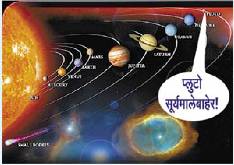jai Shivaji Maharaaj

Shivaji Raje Bhosle (February 19, 1627 – April 3, 1680), commonly known as Chhatrapati Shivaji Maharaj (Marathi: छत्रपती शिवाजीराजे भोसले) laid the foundations of the Maratha Empire. Shivaji Maharaj was younger of the two sons of Shahaji Bhosle and Jijabai. His father, Shahaji was a Maratha general who rendered military services at various times against the Bijapur Sultanate, Deccan sultanates and the Mughals.[3] Shivaji Maharaj espoused the ideology of Hindavi Swarajya (Indian Self Rule) and took a solemn oath in a Hindu temple with his friends and soldiers to directly challenge the foreign rule of the Bijapur Sultanate and ultimately the mighty Mughal empire. Shivaji Maharaj succeeded in establishing control of a well defended segment of the present state of Maharastra in western India, during his lifetime.[4].
Shivaji Maharaj’s ideology of Hindavi Swarajya and subsequent expansion of the Maratha Empire, was partly responsible for re-establisment of Hindu rule and its re-emergent assertiveness throughout the mainland of present day India after being ruled and dominated by various Muslim dynasties for several centuries. The ideology of Hindavi Swarajya was in part the inspiration that propelled the succeeding generation of Marathas to establish independent kingdom in India prior to their eventual defeat by the British Empire. This ideology was neither directed against Islam nor aimed toward propagation of Hinduism.[5] Shivaji's vision was for a united India, that would not yield to attacks by oppressive rulers.
Shivaji Maharaj established and set up a competent civil rule with the help of well regulated and disciplined military and well structured administrative organizations. The then prevalent practices of treating women as war booty, destruction of religious monuments, slavery and forceful religious conversions were firmly opposed under his administration. Shivaji Maharaj himself was a religious, devout and tolerant Hindu who worshipped with deep faith. Shivaji Maharaj innovated rules of military engagement of that era. He pioneered Ganimi Kava (in Marathi), or guerrilla tactics, which leveraged various factors like demographics, speed, surprise and focused attack. In comparison to his enemies, Shivaji Maharaj had a smaller army and thereby was obliged to wage guerilla warfare to help overcome this great imbalance.[6]
A large portion of his kingdom was a coastline and he secured it with a potent navy under his commander, Kanhoji Angre. He was very successful in keeping foreign naval ships, particularly Portuguese and British, under check. For his foresight of establishing one of the first large scale naval presence he is referred to as the "Father of Indian Navy".[7] Building and securing seaside and land based forts played an important role in Shivaji Maharaj’s military history. Shivaji's attention to coastal and naval defence delayed the eventual establishment of British rule and trade along India's west coast.
Diwali
 Diwali
Diwali (also called Deepavali, दिवाली or दीपावली) is a major Hindu, Jain, Sikh and Buddhist festival/celebration. Known as the "Festival of Lights," it symbolises the victory of good over evil, and lamps are lit as a sign of celebration and hope for mankind. Celebrations focus on lights and lamps, particularly traditional diyas (as illustrated). Fireworks are associated with the festival in some regions of the country.Deepavali is celebrated for five consecutive days in the Hindu month of Ashwayuja. It usually occurs in October/November, and is one of the most popular and eagerly awaited festivals of India. Hindus, Jains and Sikhs alike regard it as a celebration of life and use the occasion to strengthen family and social relationships. For Jains it is one of the most important festivals, and beginning of the Jain year. It is also a significant festival for the Sikh faith.
Pluto

Leading astronomers on Thursday approved historic new guidelines under which distant Pluto is no longer defined as a planet. After a tumultuous week of clashing over the essence of the cosmos, the International Astronomical Union stripped Pluto of the planetary status it has held since its discovery in 1930. It is the first time that scientists have had a formal definition of what is — and is not — a planet. The decision by the prestigious international group spells out the basic tests that celestial objects will have to meet before they can be considered for admission to the elite cosmic club. For now, membership will be restricted to the eight "classical" planets in the solar system: Mercury,Venus, Earth, Mars, Jupiter, Saturn, Uranus and Neptune. Much-maligned Pluto doesn’t make the grade under the new rules for a planet: "a celestial body that is in orbit around the sun has sufficient mass for its self-gravity to overcome rigid body forces so that it assumes nearly round shape, and has cleared the neighbourhood around its orbit." Pluto is automatically disqualified because its oblong orbit overlaps with Neptune’s. Instead, Pluto will be re-classed in a new category of "dwarf planets", similar to what have been termed "minor planets". The definition also lays out third class of lesser objects orbit the sun —"small solar system bodies", a term that will apply to numerous asteroids, comets and other natural satellites. Two of the objects that at one point were cruising toward possible full-fledged planethood will join Pluto dwarfs: the asteroid Ceres, which was a planet in 1800s before it got demoted, and 2003 UB313, an icy object slightly larger than Pluto nicknamed Xena by discoverer, Michael Brown of the California Institute of Technology.
Infotech

Established with a vision to be a “Centre of Excellence in Techno Management”, the Systems Club started off as a Student Branch of the "Computer Society of India". The club was unique among CSI's 62 chapters and over 100 student branches, in that it offered a technological edge to the managerial aspirants.
Since then the club has moved forward from being a student branch of the CSI to being a full fledged club at IIMC itself. Our goal is to excel as a center of techno-management and equip future managers with technological tools to combat the ever-changing business environment by organizing seminars, workshops and talks by industry and nation wide events like simulation games, paper contest & live case studies.
Vishal
Vishal
Jump to:
navigation,
searchVishal is a first name often found in the
Hindu community. It is also a common adjective found in north Indian languages such as
Hindi,
Marathi,
Gujarat. The word has its root in the parent language
Sanskrit. In languages, it means big or of large proportions but not to refer to size. The meaning comes closer to grand or great. There is no exact translation of "Vishal" in English. A few interpretations are immense, Unstoppable One, One Who Dreams Impossible Dreams, or One Who Reaches for the Sky and is Creative Beyond All Dreams.
Some information in this article or section has not been
verified and may not be reliable.Please
check for any inaccuracies, modify and
cite sources as needed.
Vishal is also a
deity in
Hinduism. He is the brother of the blue god,
Nilesh.




